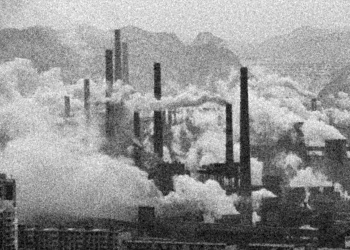Epitalia –
The European Parliament has adopted its position on two rules to reduce pollution and to favor the green transition of large agro-industrial installations.
Parliament’s negotiating position on the Industrial Emissions Directive (IED) and the Landfill Directive was adopted by MEPs by 396 votes to 102, with 131 abstentions. Concerning the regulation on the industrial emissions portal, MEPs adopted their negotiating mandate with 563 votes to 51, with 18 abstentions.
Industries and farms covered by the new rules.
MEPs supported the Commission’s proposal to extend the IED to extractive industry installations (mines) and large installations manufacturing batteries (with the exception of those assembling only modules and battery packs). The directive, once finally adopted, would oblige these plants to further reduce pollution of the air, water and soil.
Concerning farms, MEPs voted to maintain the existing rules which cover pig farms with more than 2000 places for the production of pigs (over 30 kg), or with more than 750 places for sows, and those of poultry with more than 40,000 seats, as well as farms with at least 750 livestock units (LU). Parliament has not spoken out in favor of extending the scheme to cattle farms as proposed by the Commission.
The Commission had initially proposed a threshold of 150 LU for all livestock. MEPs also stress the importance of ensuring that manufacturers outside the EU meet requirements similar to EU rules.
Transparency and public participation.
MEPs also voted to increase transparency and public participation in the area of licensing and the operation and control of regulated installations. The European Pollutant Release and Transfer Register (E-PRTR) will be transformed into the European Industrial Emissions Portal, where citizens will be able to access data on all European permits and polluting activities in their area.
After the vote, rapporteur Radan Kanev (EPP, Bulgaria) said: “Better protection of the environment need not lead to more bureaucracy. Innovation is the key to achieving zero pollution and for this we need a more competitive European industrial sector. EU policy must be realistic, economically feasible and must not undermine competitiveness. Our position offers businesses some breathing room, giving them reasonable transition periods to prepare for new requirements, faster permitting procedures and flexibility to develop state-of-the-art techniques.”
Parliament is now ready to start negotiations with the Council on the final text of the law.
The Industrial Emissions Directive lays down rules for the prevention and control of pollution into air, water and soil from emissions from large agro-industrial installations. The latter can be the cause of health problems such as asthma, bronchitis and cancer, which cause hundreds of thousands of premature deaths every year in the EU. This legislation is part of the green and circular transformation of EU industry, capable of bringing significant benefits to citizens’ health and the environment.
This legislation responds to citizens’ expectations regarding the “polluter pays” principle, accelerates the green transition and promotes greener production processes, as expressed in proposals 2(2), 3(1), 11(1) and 12(5) of the conclusions of the Conference on the future of Europe.


